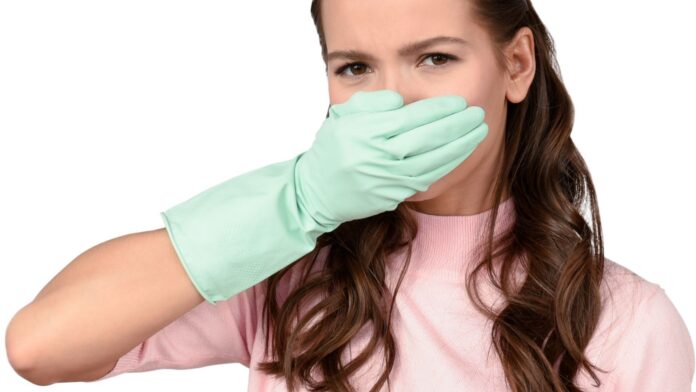If I Can Smell Myself Through my Pants Can Others
If I can smell myself through my pants, it’s only natural to wonder if others can detect my body odor as well. The science behind body odor is a fascinating subject that delves into the chemical processes happening on our skin. Understanding how and why we produce certain odors can shed light on whether our scent is noticeable to those around us.
Body odor arises from the interaction between the sweat produced by our sweat glands and the bacteria living on our skin. When we sweat, particularly in areas with a high concentration of apocrine sweat glands (such as the underarms or groin), these glands release substances like proteins and lipids. These molecules, when broken down by bacteria present on our skin, generate distinct odorous compounds.
The intensity of body odor varies from person to person due to factors such as genetics, diet, hygiene practices, and overall health. While you may be able to detect your own scent through your pants, it doesn’t necessarily mean that others can smell you in the same way. Our noses become accustomed to familiar smells over time, making it harder for us to perceive our own odor accurately.
What Causes Body Odor?
Body odor is a natural occurrence that affects everyone to some extent. It occurs when sweat combines with bacteria on the skin’s surface and produces an unpleasant smell. The specific causes of body odor can vary from person to person, but there are several common factors:
- Sweat Glands: Our bodies have two types of sweat glands – eccrine and apocrine glands. Eccrine glands are found all over the body and produce sweat that is primarily composed of water and salt. Apocrine glands, on the other hand, are located in areas such as the armpits and groin and release a thicker substance containing proteins and lipids. When these substances come into contact with bacteria on the skin, it leads to body odor.
- Hormonal Changes: Hormones play a significant role in body odor production. During puberty, for example, increased hormone levels trigger changes in sweat gland activity, leading to more intense body odor. Similarly, hormonal fluctuations during menstruation or menopause can also contribute to changes in body scent.
- Diet: What we eat can influence our body odor as well. Certain foods like garlic, onions, spices, and strong-smelling ingredients can cause their aroma to be released through sweat pores after digestion. Additionally, consuming excessive amounts of alcohol or caffeine may lead to an increase in perspiration and subsequently worsen body odor.
- Medical Conditions: In some cases, underlying medical conditions can contribute to persistent or unusually strong body odor known as bromhidrosis or osmidrosis. Conditions such as diabetes, liver disease, kidney dysfunction, certain genetic disorders (like trimethylaminuria), or hormonal imbalances may affect the composition of sweat or how it is broken down by bacteria.
- Poor Hygiene: Neglecting personal hygiene practices like infrequent showering or not changing clothes regularly allows bacteria to multiply on the skin’s surface for longer periods of time. This can intensify body odor.

The Role of Sweat Glands
When it comes to the science of body odor, one cannot overlook the crucial role played by sweat glands. These tiny, but mighty, glands are responsible for producing sweat, which is the primary factor contributing to our body odor. Let’s dive deeper into understanding how sweat glands work and their impact on our scent.
- Sweat Gland Types: There are two main types of sweat glands in our body – eccrine and apocrine glands. Eccrine glands are found all over our skin and play a significant role in regulating body temperature. They produce a clear, odorless liquid that helps cool down our body when we’re feeling hot or exerting ourselves physically. Apocrine glands, on the other hand, are primarily located in areas like the armpits and groin region. These glands produce a thicker substance that contains proteins and lipids – ingredients that bacteria love to feast upon.
- The Bacterial Interaction: While sweat itself may not have an unpleasant smell, it becomes a breeding ground for bacteria once it reaches the surface of our skin. Bacteria naturally present on our skin break down the proteins and lipids in sweat into volatile fatty acids. It is these acids that give rise to the distinctive body odor we often associate with sweating.
- Individual Variation: The intensity of body odor can vary greatly from person to person due to several factors such as genetics, diet, hygiene habits, and overall health condition. Some individuals may have more active sweat gland activity or a higher concentration of bacteria on their skin, leading to stronger odors even with minimal physical activity.
- External Factors: Apart from individual differences, external factors can also influence how noticeable your body odor is to others. The type of clothing you wear plays a crucial role as certain fabrics can trap moisture against your skin, creating an ideal environment for bacterial growth and intensifying body odor. Additionally, certain medications or medical conditions can cause an increase in sweat production or alter the composition of sweat, resulting in a distinct odor.


